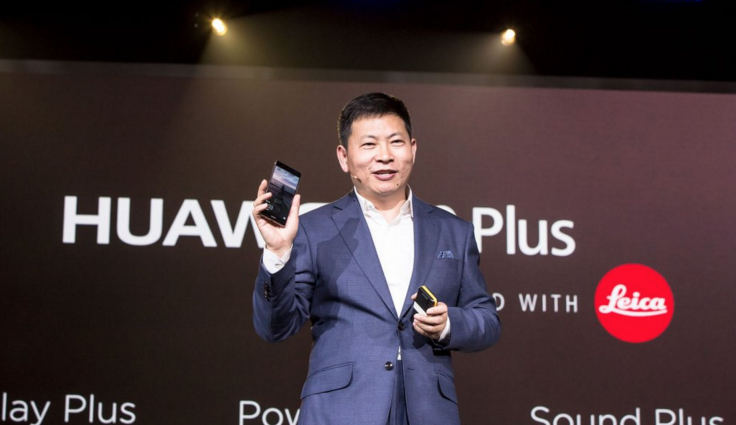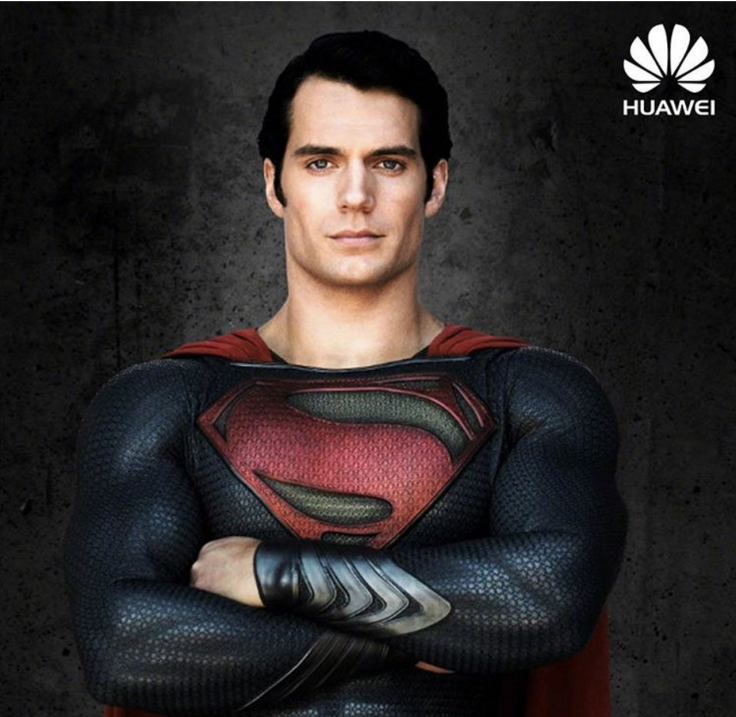Huawei Hopes Superman And Black Widow Will Help Smartphones Sell In US Market

How does a Chinese smartphone company like Huawei, which is relatively unknown in the U.S., sell a new flagship smartphone that is going up against premium devices like Appe’s iPhone 6S and Samsung Galaxy S7? Simple, get the Avengers and Superman to sell it for you.
Huawei, which launched the P9 and P9 Plus smartphones in London on Wednesday, is hoping the star appeal of two of Hollywood’s biggest names — Scarlett Johansson and Henry Cavill — as well as a partnership with iconic German photography company Leica, will help it finally break free of the perception that it is just a budget manufacturer. It also hopes these moves will help it make an impact on the U.S. market, where it not only faces challenges from Apple and Samsung at the premium end of the market, but where it also needs to overcome the negative perception associated with its brand.
An all-metallic smartphone that is slimmer than either the iPhone 6S or the Galaxy S7, the P9 features an all-new dual-sensor camera co-engineered with Leica that promises to produce photographs better than anything available from Apple or Samsung. Just like Apple, Huawei will offer its new phone in two sizes, with the P9 featuring a 5.2-inch screen and the P9 Plus featuring a 5.5-inch screen.

The partnership with the luxury Leica brand is a key one for Huawei, which is seeking to boost its brand awareness in Western markets like the U.S. where it is seeking to move away from the tag of budget smartphone maker. Leica CEO Oliver Kaltner appeared onstage at the launch event in London where the iconic red disc Leica logo was prominently displayed.
“Huawei is a very reliable partner and a representative of the rich history and culture of China,” Kaltner said. Leica’s name will appear on the P9, while the technology provided by the company promises to improve contrast in photos by 50 percent and triple the light information taken in by the phone.
“Huawei’s main challenge is brand, not product quality,” Ian Fogg, mobile analyst with IHS, told International Business Times. “The Leica partnership is their latest effort to use partners to build brand positioning. In the U.S., last year’s Nexus 6P in conjunction with Google was more significant.”
Richard Yu, head of Huawei consumer business group, who launched the phones, has previously stated his intention to overtake both Apple and Samsung in the smartphone market. According to IDC, at the end of 2015, Huawei held just 8.1 percent of the global smartphone market, putting it in third place behind Samsung (21.4 percent) and Apple (18.7 percent). However, Huawei’s trajectory is what is most impressive about the company.
In 2015 it managed to sell 107 million smartphones, a huge 44 percent increase on the previous year, but it has so far failed to make any significant impact in the U.S., the third-biggest smartphone market in the world. The company recently reported a 33 percent rise in profits thanks to its increased smartphone sales.

Huawei has announced the P9 will go on sale later this month in Europe and Asia, but the company has stopped short of making an announcement about the U.S. market, where Huawei does not sell any of its flagship models — aside from the Nexus 6P, which it built in conjunction with Google last year.
Huawei told IBT in January that it was planning a two-pronged approach to the U.S. market in 2016, with the company’s Honor sub-brand pushing budget smartphones with decent specs — such as the Honor 5X — while at the premium end of the market it would make a concerted effort to push the Huawei brand — and the P9 is likely to lead that charge.
“The P9 signals the company’s intent to compete at the top of the smartphone market,” Ben Wood, mobile industry analyst at CCS Insight, told IBT. “Huawei is placing strong emphasis on design, performance and the Leica-powered dual camera to enhance its premium credentials.”
On Wednesday, ahead of the launch of the P9, Yu told the Wall Street Journal that Huawei would be launching a flagship smartphone in the U.S. in 2016, adding: “We want to become No. 1 as a premium brand.”
Chinese companies like Xiaomi have refrained from entering the lucrative U.S. market over fears of patent litigation, but Huawei filed almost 4,000 patents in 2015, making it the biggest patent-filer in the world for the second year in a row, highlighting one of the company’s major strengths.
One of the major stumbling blocks Huawei has is related to its continued links to the Chinese government and military — company co-founder Ren Zhengfei is a former military engineer. As Apple makes encryption a key selling point for its products, it remains to be seen if Huawei’s alleged ties with the People’s Liberation Army matter to American consumers.
A 2012 House of Representatives Intelligence Committee investigative report claimed Huawei presented a clear “threat to U.S. national security interests.” Rather than providing substantive proof, though, the committee pointed to Huawei’s failure to clearly answer questions about how its board of directors is selected.
Google’s decision to choose Huawei to produce the Nexus 6P is a major step toward convincing U.S. consumers that Huawei is a brand to be trusted, but it remains to be seen if Superman’s endorsement will finally see it challenge Apple and Samsung.
© Copyright IBTimes 2024. All rights reserved.






















